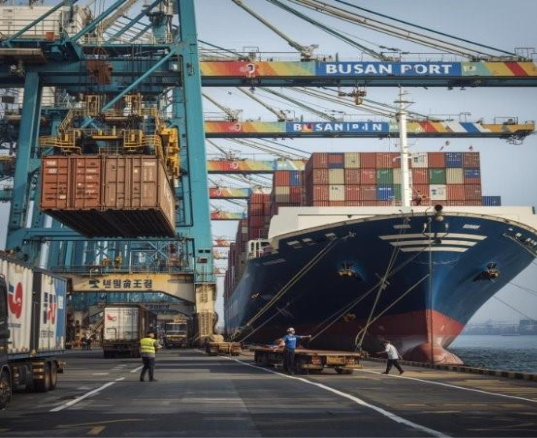UNDERSTANDING INCOTERMS:THE KEY TO CLEAR INTERNATIONAL TRADE AGREEMENTS
- Darryll Wilson
- Nov 18, 2025
- 3 min read

In global trade, clarity is everything. INCOTERMS — short for International Commercial Terms — define the responsibilities of buyers and sellers in international transactions. They eliminate confusion by specifying who handles shipping, insurance, customs clearance, and delivery.
Below is a summary of the most commonly used INCOTERMS and how they shape international shipping responsibilities.
EXW – Ex Works

Under EXW terms, the seller’s delivery obligation is fulfilled once the goods are made available to the buyer at the seller’s premises or another agreed location (e.g., factory, warehouse). The seller is only responsible for preparing the goods, while the buyer assumes all costs and risks for collecting the cargo and transporting it to the final destination.
Example: Buyer picks up goods at a factory in Korea

FCA – Free Carrier

FCA means that the seller needs to hand over the goods to the carrier designated by the buyer at the designated place agreed in the contract and is responsible for handling export customs clearance procedures. Once these steps are completed, the seller is deemed to have completed the delivery, and the risk and cost of the goods will be transferred to the buyer.
Example: Seller delivers goods to Incheon CY; Buyer arranges ocean transport

FOB – Free On Board

FOB – Free On Board, which means the seller is responsible for loading the purchased cargo onto the ship, and all costs associated. The point the goods are safe aboard the vessel, the risk transfers to the buyer, who assumes the responsibility of the remainder of the transport.
FOB is the most common agreement between an international buyer and seller when shipping cargo via sea. This Incoterm only applies to sea and inland waterway shipments.
Example: Goods loaded at Busan port→ risk transfers to Buyer

CIF - Cost, Insurance, and Freight

In CIF terms, the seller clears the goods at origin places the cargo on board and pays for insurance until the port of discharge at the minimum coverage. Even though the seller pays for insurance during the main carriage, the risk is transferred to the buyer at the time the goods are on board. The term is used for ocean and inland waterway transportation only.
Example: Seller pays Busan →Rotterdam freight including insurance

DAP - Delivery at Place

DAP, Delivery at Place, the sellers is responsible for moving the goods from origin until their delivery at the disposal place agreed with the buyer ready for unloading at destination. The seller bears the risk until delivery of goods to the named place and should get a contract of carriage that matches the contract of sale until the agreed delivery point. If there is an extra fee for unloading the goods, the seller cannot charge it to the buyer. This term can be used for any mode of transportation.

DDP - Delivered Duty Paid

Used in sea freight and air freight importing, when shipping under this Incoterm, the maximum responsibility is placed on the seller. DDP can be risky since sellers are responsible for the delivery, and may lack local destination knowledge and requirements.
For companies navigating these terms, the biggest challenge is not just choosing the right Incoterm, but coordinating the operations behind it. This is where Hugix supports freight forwarders and logistics teams. With expert knowledge across Asia and Europe, Hugix helps businesses manage documentation, supplier coordination, and shipment monitoring so that each Incoterm is executed smoothly and without delays. Clear roles and responsibilities matter, and our team ensures every shipment follows them from origin to destination.


